Struggling to find a trustworthy weighbridge supplier? A wrong choice leads to costly errors and project delays. Partnering with the right manufacturer ensures quality, accuracy, and protects your business reputation.
To find the right manufacturer, focus on their production experience, quality control processes, international certifications, and technical support. A direct-from-factory partner, like us at Weigherps, often provides better value, customization, and reliable after-sales service, giving you a competitive edge.
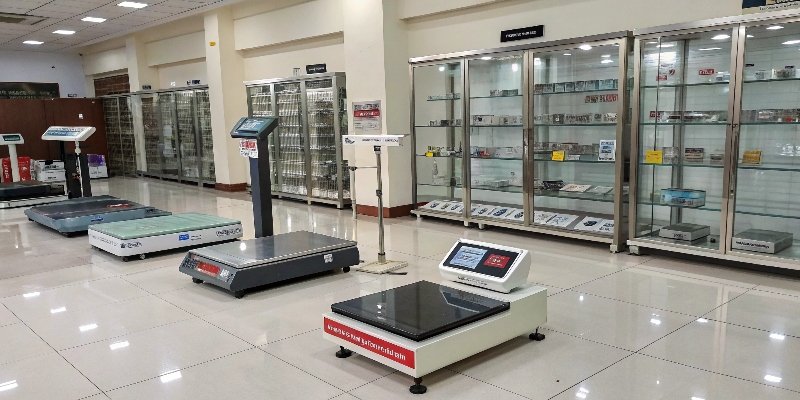
Finding that ideal partner seems complex, but it's simpler than you think. After 18 years in this business, I've seen what separates the best from the rest. Let's break down the key questions you should be asking. This will help you make a confident decision and find a supplier who truly understands your needs, especially if you're a software vendor looking for seamless hardware integration. In the following sections, we’ll explore exactly what you need to look for.
What factors should you consider when choosing a weighbridge and weighing scale manufacturer or exporter?
Overwhelmed by the number of potential suppliers? Choosing the wrong one can lead to integration nightmares and poor performance. Focus on a few key factors to find a perfect match.
You should consider their manufacturing experience (OEM/ODM capabilities), quality control systems, available certifications (like CE), and technical support. Also, check their ability to customize solutions for your specific software and market needs. This ensures a reliable and compatible partnership.
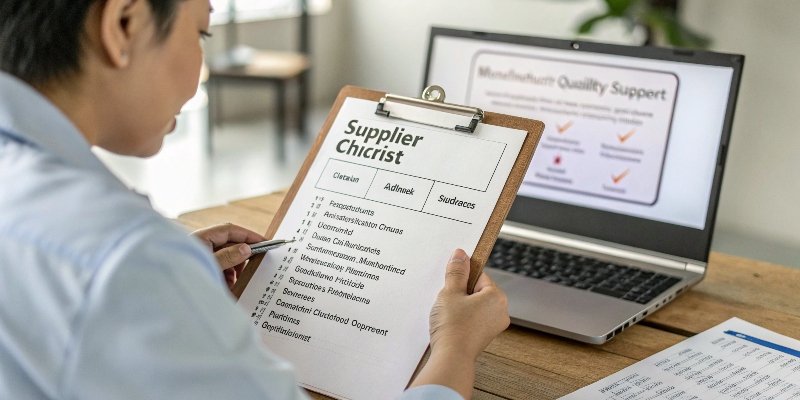
When you partner with a manufacturer, you're not just buying a product; you're investing in a relationship. For our partners in the software industry, this is even more critical. Your software's success depends on the hardware it runs on. Based on my experience, here are the core factors to scrutinize.
Manufacturing and Technical Expertise
First, look at their history. How long have they been in business? Do they have experience with both OEM (Original Equipment Manufacturer) and ODM (Original Design Manufacturer) projects? As a factory with 18 years of experience, we at Weigherps have seen it all. An experienced team can foresee potential problems and offer solutions before they impact your project. This is especially important for custom weighing systems that need to integrate with your software. You need a team that speaks your language—automation, IoT, and API integration.
Quality, Customization, and Support
Next, dig into their processes. How do they ensure quality? What is their after-sales support structure? A dedicated quality control department is non-negotiable. Don't be afraid to ask about their testing procedures. Can they customize the product for your market? A good partner will work with you to provide a tailored solution, not a one-size-fits-all box.
| Factor to Consider | Why It Matters for Software Vendors |
|---|---|
| OEM/ODM Experience | Verifies they can build products to your exact specifications. |
| Technical Team | Ensures you have expert support for software and hardware integration. |
| Quality Control | Guarantees the scales provide accurate data for your software to process. |
| Customization Ability | Allows for unique features and branding for your market. |
| After-Sales Support | Provides peace of mind and quick resolution if issues arise. |
How do leading manufacturers ensure the quality and accuracy of weighbridge and weighing scale products?
Worried that the scales you buy won't be accurate? Inaccurate readings can corrupt your data and ruin your software's credibility. Leading manufacturers follow strict protocols to guarantee precision every time.
We ensure quality through a multi-stage process. This includes using high-grade raw materials, rigorous in-process checks, and comprehensive final testing by a dedicated quality control department. Every single unit is tested for weight, battery, and software functionality before it ships.
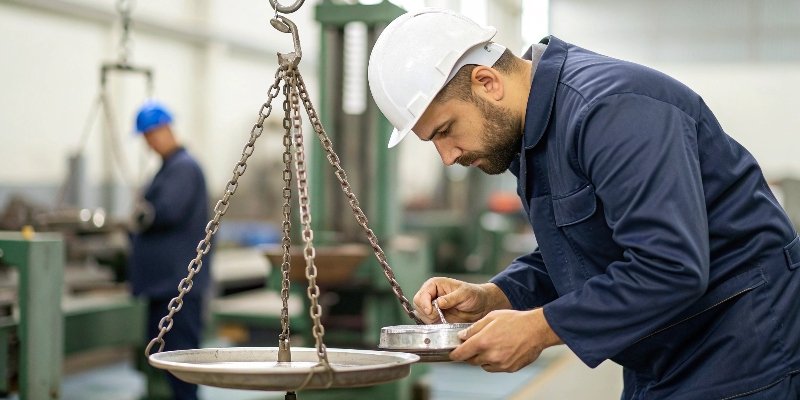
Quality isn't an accident. It's the result of a deliberate and systematic process. I've personally overseen the development of our quality assurance system, and it’s the bedrock of our company. A cheap scale that gives wrong readings is worse than no scale at all. For our clients who are software providers, data integrity is everything. Your reputation depends on it, and so does ours.
The Role of the Quality Control Department
A truly professional manufacturer has an independent quality inspection department. This isn't just one person checking boxes. At Weigherps, our QC team is involved from the very beginning. They inspect incoming raw materials and components, like load cells and indicators, because you can't build a great product with bad parts. They are empowered to halt production if they find any deviation from our standards.
Multi-Point Testing Protocol
Every scale that leaves our facility goes through a battery of tests. We don’t just spot-check a few from every batch; we test every single one. This is what we do:
| Testing Stage | Purpose | Key Checks Performed |
|---|---|---|
| 1. Component Inspection | Ensure all parts meet design and quality standards before assembly. | Load cell sensitivity, indicator display function. |
| 2. In-Process Assembly | Catch errors during the manufacturing process. | Wiring integrity, structural soundness. |
| 3. Software Functionality | Crucial for our software partners; confirms seamless operation. | Data output, connectivity, response time1. |
| 4. Final Calibration | Guarantees the scale's accuracy across its full capacity. | Testing with certified standard weights. |
| 5. Pre-Shipment Check | Final verification that the product is 100% ready for the customer. | Battery life, packaging, included accessories. |
Only after a product passes every single one of these stages does it get the green light for shipment.
What are the export standards and certifications required for weighbridges and weighing scales?
Confused by international compliance and certifications? Non-compliant products can be blocked by customs, causing massive delays and costs. Understanding key standards makes the export process straightforward and safe.
The most crucial certification for export, especially to Europe, is CE marking. This confirms the product meets EU safety, health, and environmental requirements. Other important standards include OIML for metrology and RoHS for material safety. A reliable exporter will provide these documents.
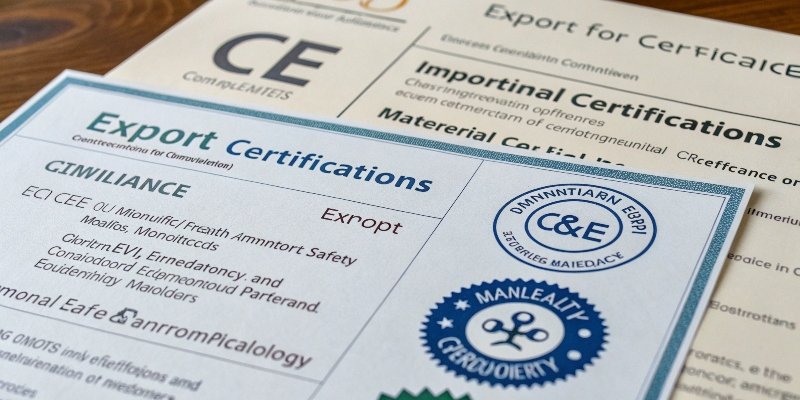
Navigating international trade regulations can seem daunting. I remember when we first started exporting, it was a huge learning curve. But now, it's a standard part of our process. A professional manufacturer doesn't see certifications as a hurdle, but as a promise of quality to the global market. If a supplier is vague about their certifications, it’s a major red flag. For you, the buyer, these documents are your assurance that the product is safe, legal, and performs as advertised.
Key Certifications to Look For
Different regions have different requirements, but a few have become global benchmarks for quality.
-
CE Marking: This is mandatory for products sold in the European Economic Area (EEA). It signifies that we, the manufacturer, have verified that the product meets all relevant EU requirements, such as safety. It’s a fundamental sign of a professional exporter.
-
OIML (International Organization of Legal Metrology): If your software will be used in applications where goods are sold by weight ("legal for trade"), this is vital. An OIML certificate ensures the scale's design meets international standards for metrological accuracy.
-
RoHS (Restriction of Hazardous Substances): This directive restricts the use of specific hazardous materials in electrical and electronic products. It's important for environmental compliance and is required in many markets.
| Certification | What It Guarantees | Primary Market |
|---|---|---|
| CE | Conforms to EU safety, health, and environmental standards. | European Union |
| OIML | Accuracy and reliability for legal-for-trade applications. | Global |
| RoHS | Free from specific hazardous materials like lead and mercury. | Global / EU |
| FCC | Does not cause harmful electromagnetic interference. | USA |
Always ask for copies of these certificates. A trustworthy manufacturer will have them readily available.
How can you verify the reliability and after-sales service of a weighbridge and scale exporter?
Afraid of being left without support after a purchase? Poor after-sales service means downtime and unresolved technical issues for your customers. You can easily verify a supplier's reliability with a few simple checks.
Verify reliability by requesting case studies, checking their warranty period—we offer a 12-month guarantee—and asking about their after-sales process. Direct communication with their technical team, not just sales, is a great sign of a supportive partner.

A sale doesn't end when the product ships. In many ways, that's when the true partnership begins. I've heard horror stories from clients who bought from other suppliers and were left with no support when a technical issue came up. That's why we built our business around being a reliable, long-term partner. Verifying this before you commit is one of the most important steps you can take.
Check the Warranty and Support Structure
First, what is their official warranty policy? A 12-month warranty is a good industry standard and shows the company stands behind its product. But a warranty is only as good as the team that supports it. Ask them to describe their after-sales process. What happens when you have a technical question? Who do you talk to? Is it a salesperson or a qualified engineer? For a software company, having direct access to a technical team that understands your challenges is invaluable.
Request Proof and Run a Pilot Project
Don't just take their word for it. Ask for references or case studies from companies like yours. A confident manufacturer will be happy to share success stories. Even better, I always encourage new partners to start with a pilot project2. Order a small number of units. This allows you to test not only the product's quality and integration with your software but also our responsiveness, communication, and support. It's the best way to see how we work and build trust before committing to a larger volume. It turns a purchase into a partnership.
Here’s a quick checklist:
- Warranty: Is it at least 12 months?
- Technical Team: Can you speak directly with engineers?
- Response Time: What is their guaranteed response time for support tickets?
- References: Can they provide case studies or client contacts?
- Pilot Project: Are they willing to support a small initial order for testing?
Conclusion
Choosing the right scale manufacturer is about more than price. Focus on quality, technical support, and a true partnership to ensure your project's success. We're here to be that partner.

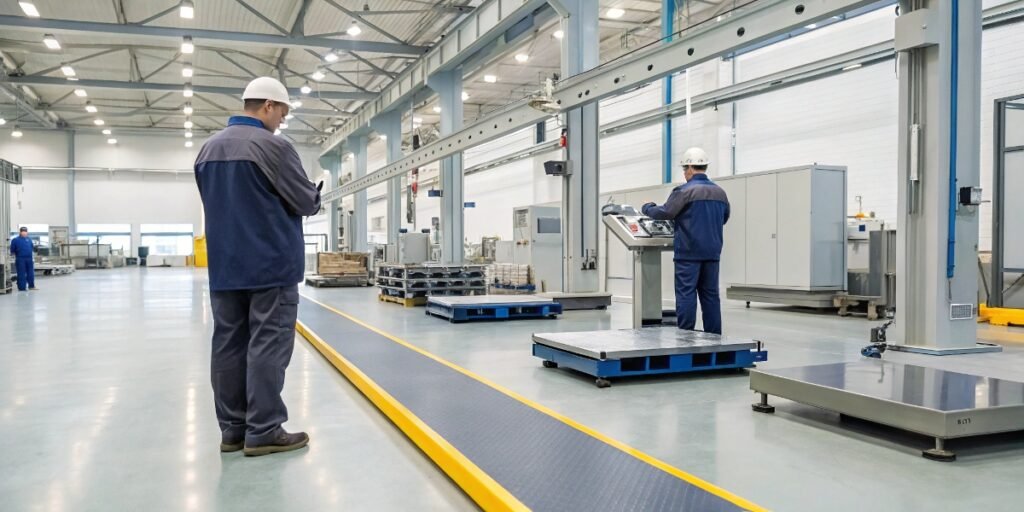



[…] you’re cutting, and we will provide the optimal abrasive disc from our RL line or develop a custom OEM solution6 for […]